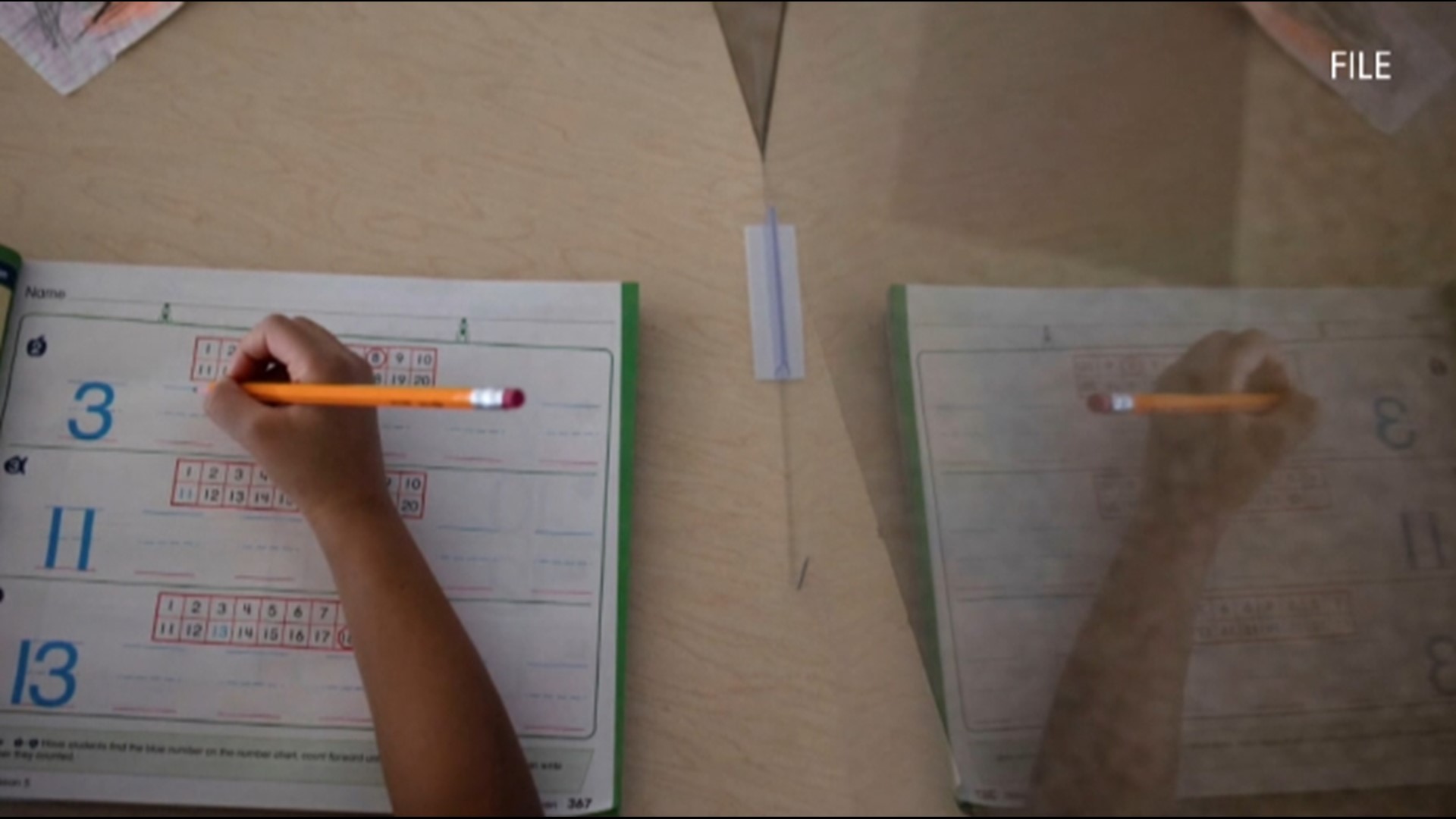SACRAMENTO, Calif. — Right now, California is in the process of updating the way it teaches math for K through 12th graders. The idea is to make math more relatable for kids.
For example: How much does a student need to make in their future career to afford a house in a city where the average household costs X amount?
It’s an update that happens every eight years.
“We currently have a math system that's not working," Stanford Professor Jo Boaler said. "And in many classrooms, students are working through short, narrow questions all the time. They're not engaged. They're not interested.”
Boaler is revising the new mathematics framework.
“I can tell you that the social justice angle is one that has been blown up," she said. "It's not a huge part of what we're recommending, but what we're saying is, of course, mathematics can be used to highlight issues in the world.”
The wage gap, for example, could be a math problem: Women earn only 82% of men’s wages for the same work.
Recently, Fox News Host Tucker Carlson picked up the news of the development for his show and ran with it.
"The State of California has announced its new Mathematics framework for students across the state, our biggest state," Tucker said. "One of the authors of this framework is a Stanford Professor called Jo Boaler. Here's how she explained the plan. These are her words, quote: 'I'm very pleased to announce the new Mathematics Framework for California. Some highlights: a strong social justice orientation.' Right," he went on "Numbers are racist, kill them. It's lunacy. It's the french revolution. The stuff is everywhere."
He's not alone in his opposition, 900 California employees working in the math and science sector penned an open letter opposing the framework, for several reasons, one stating it punishes higher achieving students by limiting gifted courses.
“I know they got a lot of pressure to sign that letter," Boaler said. "And actually most STEM departments in California, most of the people did not sign it”
She said the framework does the exact opposite, it encourages higher learning for more students.
“People think that what we're saying is, if you're high achieving, you now have to do the exact same work as students who are lower-achieving," Boaler said. "And we're not saying that at all. we're saying let's open up these pathways so more kids are able to get into get to higher levels."
She said instead of testing students as early as 4th grade to determine a math path for them through high school, she said at the very least districts should push the test back to 8th grade.
“To make that sort of decision when students are in fourth grade, fifth grade, sixth grade, we don't know what students can do," she said. "But unfortunately, once we decide you're on the lower level path, there's no turning.”
And data in California and around the country shows it’s disproportionately Black and Latino students that suffer the consequences.
The California Department of Education sent ABC10 the following statement:
"The math curriculum framework is undergoing significant revisions responsive to both public comments fielded during a 60-day public comment period and direction from the Instructional Quality Commission, which held a public hearing on the draft in May. Revisions include hundreds of line edits suggested by the public and recommended by the IQC, broader changes at IQC direction responsive to public comments, and comments from experts received since that time."
Boaler is revising the framework before another draft is released to the public in January, where it will then go to the state board of education before approval around May.
The framework is not law. It’s just a guideline for districts to use.
ABC10: Watch, Download, Read
Watch more ABC10: Student taken into custody after stabbing at Turlock High School



















